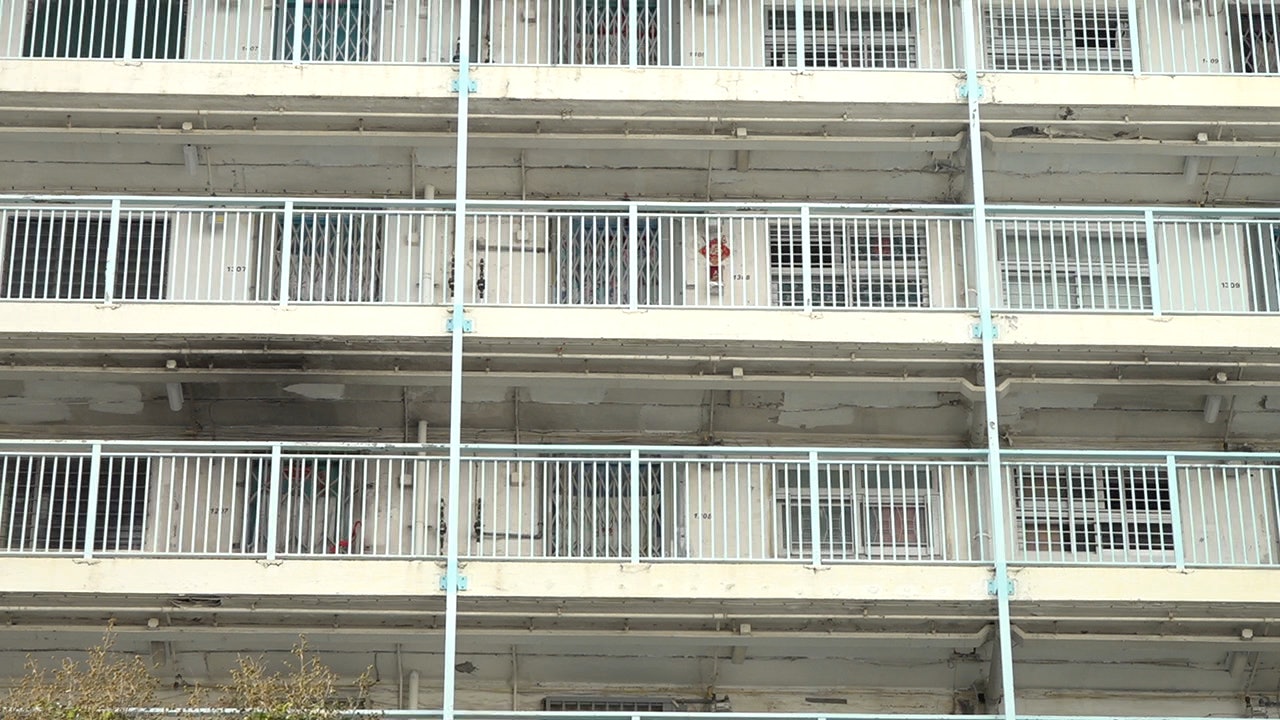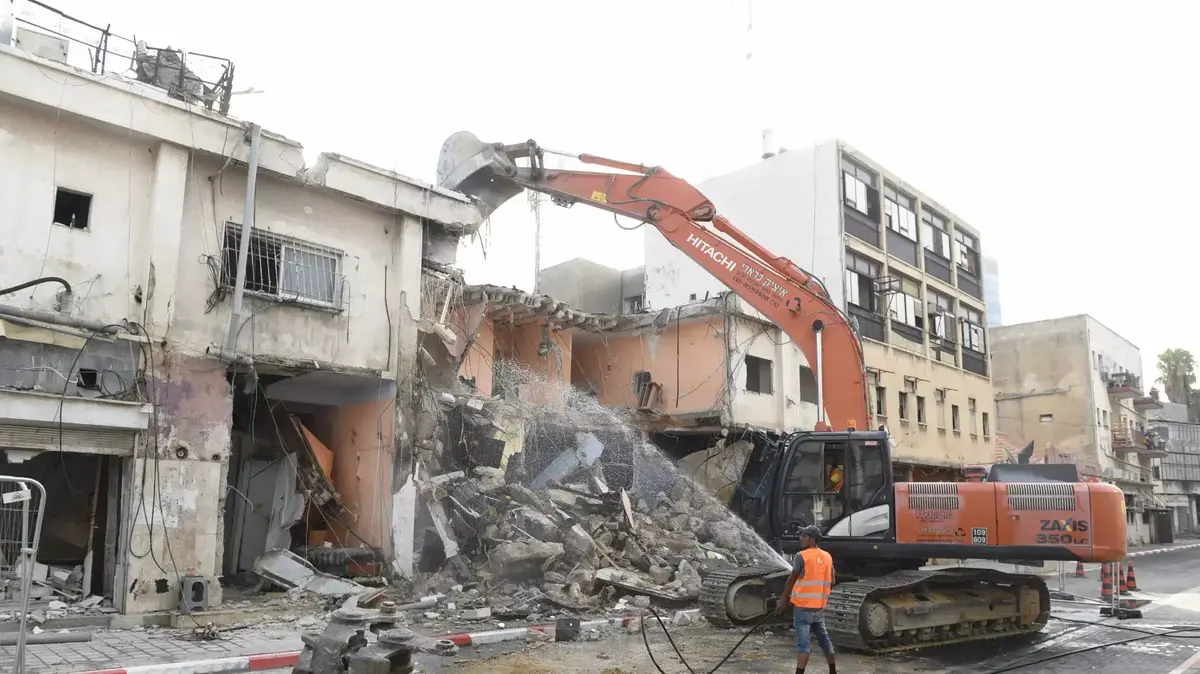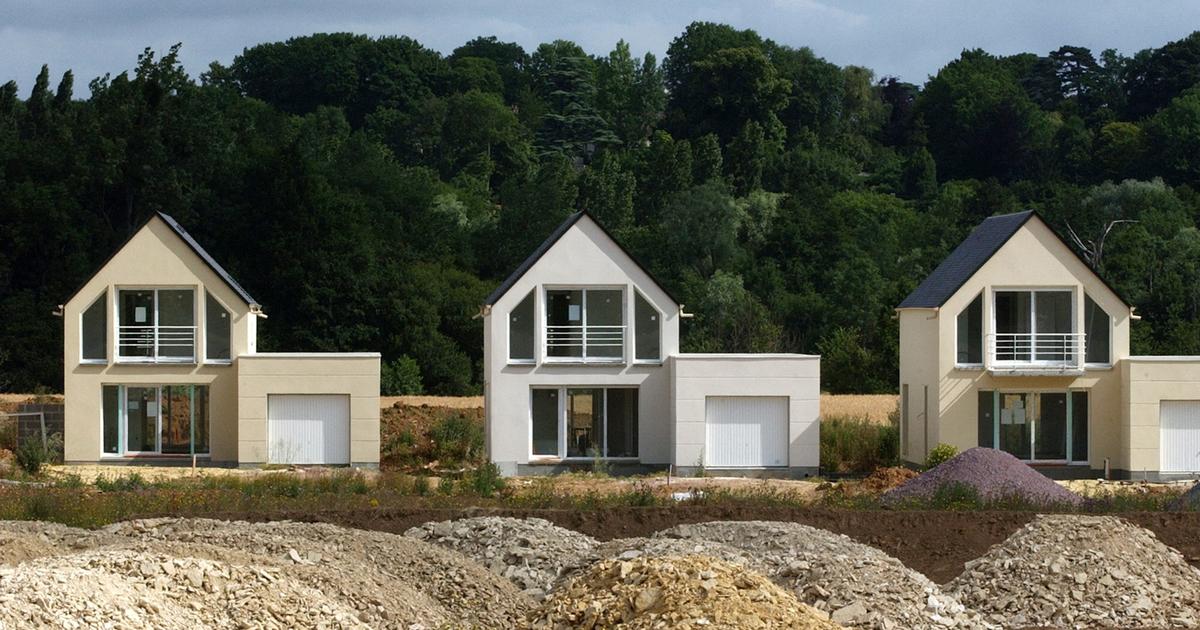The media reported that old public housing units in Shek Kip Mei Village, Sham Shui Po, had peeled off concrete.
In this incident, the tenant had asked the Housing Department for help beforehand, but the staff of the Department were accused of doing "minor repairs" according to the book, and failed to prescribe the right medicine to solve the residents' difficulties.
In addition, some Members also pointed out that the units involved were not included in the scope of the government's past reconstruction of the same housing estate, which was tantamount to letting the aging public housing endanger and threaten the safety of its residents. This led to the accident.
Shek Kip Mei Village was the first public housing estate to be built in Hong Kong. Some of the buildings were rebuilt before and after the reunification, but among them, the 19th to 24th, Mei Shan Building, Mei Hong Building and other buildings were completed from 1979 to 1983. Meicai Building still retains its original structure.
Although various parties have repeatedly requested the Housing Authority to review and rebuild these buildings, the Housing Authority has always insisted that there is no urgent need for reconstruction, and only stated that it will carry out timely maintenance and improvement works to extend their service life.
Block 21 to 24 in Shek Kip Mei Village.
(Profile picture)
The maintenance service has not solved the residents’ difficulties
The Housing Authority and the Housing Department currently maintain two main service plans for renting public housing rooms: the first is the "all-round maintenance plan" launched in 2006, that is, actively sending people to inspect public housing units that are 10 years old or more. Indoor conditions and the provision of related maintenance services; the second is the "daily home maintenance service" that has been gradually implemented since 2008, that is, after receiving public housing unit residents' request for maintenance, personnel will be arranged to conduct inspections and improvement projects as soon as possible.
It must be pointed out that the above two plans still have many shortcomings in solving the difficulties of households.
In a surprise inspection conducted by the Audit Commission in 2016, it was found that nearly 90% of the project results of the "Total Maintenance Plan" were not satisfactory, and the performance verification of the "Daily Home Maintenance Service" also showed that the quality of the projects was generally poor.
In addition, under the "Comprehensive Maintenance Plan", housing estates aged less than 30 years will only be inspected every 10 years, and if they are more than 30 years old, they will only be inspected every 5 years. The frequency is obviously too loose.
The reconstruction plan needs to be on the agenda
Compared with the environment of individual units, the situation of the whole building is more worthy of attention, because the structural problems caused by the aging of the building cannot be improved by maintaining a small number of rooms alone.
In the 1980s, problematic public housing scandals broke out one after another, forcing the Housing Authority to launch a public housing "comprehensive redevelopment plan" to rebuild 566 buildings, including some buildings in Shek Kip Mei Village. However, the plan was to deal with the housing estates involved in the scandal. The village was immediately suspended, and there has been no large-scale public housing reconstruction plan in Hong Kong ever since.
Instead, the Housing Authority began to implement the "Comprehensive Structural Survey Plan" in 2005, selecting some of the higher-age housing estates to conduct detailed surveys to assess whether repairs or alterations are needed. Later, in 2011, it formulated the "Reconstruction of High-rise Buildings". "Optimization Policy for Building Age Public Rental Housing Estates", based on four principles to determine whether there is a need for reconstruction in the housing estates under its jurisdiction.
However, the "Comprehensive Structural Survey Plan" cycle turned out to be 15 years longer than the "Comprehensive Maintenance Plan", and as of the previous year, only three housing estates in Hong Kong were actually allowed to rebuild.
Mei Bao Building, Mei Tung Estate, was completed in 1983 and was rebuilt by the Housing Authority earlier.
(Photo by Yu Junliang)
Moreover, public housing reconstruction can not only solve the living conditions of the existing tenants in the relevant housing estates, but should also help relieve the pressure on the supply of housing in Hong Kong in the long run.
Although the number of public housing estates must be temporarily reduced at the time of the reconstruction of housing estates, because public housing buildings in the past did not fully use the plot ratio and height restrictions allowed today, the reconstruction will often be able to accommodate more tenants, and in fact it will be carried out soon. Reconstruction projects such as Meidong Village and Huafu Village in China are expected to more than double the number of units.
Since the Chief Executive Carrie Lam has claimed that the next Policy Address will put "planning for the future" before "satisfying demands" and continue to make land development a priority of his policy, then it will undoubtedly be a very important issue to review and rebuild old public housing estates. A good entry point. After all, these lands are clearly available land that has already been developed, and it was determined that the local area will be used for the construction of public housing. The nearby facilities must be sufficient, but the construction period is too early to make the most of the development potential. In this way, does the reconstruction not completely conform to its policy?
Is the Lam Cheng government far-sighted or far-sighted?
The proportion of rental expenses has increased greatly. Who can understand the plight of the grassroots?
Accelerating the development of the New Territories depends on reform and accountability











/cloudfront-eu-central-1.images.arcpublishing.com/prisa/KMEYMJKESBAZBE4MRBAM4TGHIQ.jpg)


/cloudfront-eu-central-1.images.arcpublishing.com/prisa/EXJQILQR5QI7OMVRTERD7AEZAU.jpg)
